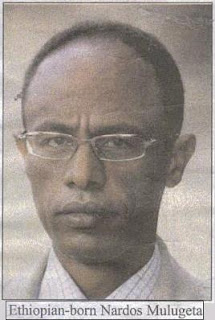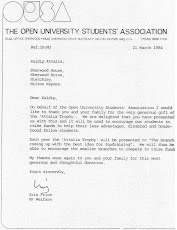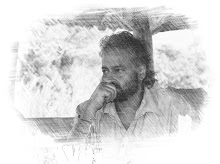
Iraq patriot Muntazer al-Zaidi declared HERO for his shoe attack on war criminal Bush
What a powerful message this true Iraq patriot sent
"This is a farewell kiss, you dog," he yelled in Arabic as he threw his shoes.
"This is from the widows, the orphans and those who were killed in Iraq."
Arab world hails shoe attack as Bush's farewell gift
Baghdad (AFP) - - Iraq faced mounting calls on Monday to release the journalist who hurled his shoes at George W. Bush, an action branded shameful by the government but hailed by many in the Arab world as an ideal parting gift to the unpopular US president.
Colleagues of Muntazer al-Zaidi, who works for independent Iraqi television station Al-Baghdadia, said he "detested America" and had been plotting such an attack for months against the man who ordered the invasion of his country.
"Throwing the shoes at Bush was the best goodbye kiss ever... it expresses how Iraqis and other Arabs hate Bush," wrote Musa Barhoumeh, editor of Jordan's independent Al-Gahd Arabic newspaper.
The hypocrite Iraqi government however branded Zaidi's actions as "shameful" and demanded an apology from his Cairo-based employer, which in turn was calling for his immediate release from custody.
"As far as I'm concerned, as he long as he hit him using a shoe it's perfect," said Cairo shoe~shiner Ahmed Ali.
Iraqi Muntazer Al-Zaidi Throws a Shoe at Pr Bush of USA – 17th Dec 08
An Egyptian man said Wednesday he was offering his 20-year-old daughter in marriage to Iraqi journalist Muntazer al-Zaidi, who threw his shoes at U.S. President George W. Bush in Baghdad Sunday, The daughter, Amal Saad Gumaa, said she agreed with the idea. "This is something that would honour me. I would like to live in Iraq, especially if I were attached to this hero," she told Reuters by telephone.
Egyptian offers daughter to Iraqi shoe-thrower.
Her father, Saad Gumaa, said he had called Dergham, Zaidi's brother, to tell him of the offer. "I find nothing more valuable than my daughter to offer to him, and I am prepared to provide her with everything needed for marriage," he added.
Zaidi's gesture has struck a chord across the Arab world, where President Bush is widely despised for invading Iraq in 2003 and for his support for Israel.
Amal is a student in the media faculty at Minya University in central Egypt.
Zaidi's response to the proposal was not immediately clear.
http://sg.news.yahoo.com/afp/2008121...a-7e07afd.html























